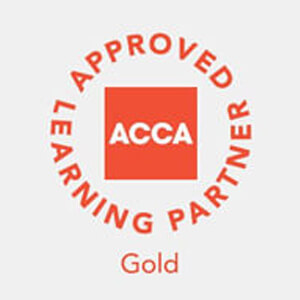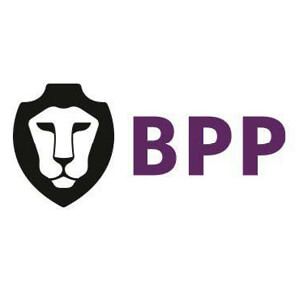Course Length
Intakes
Online Course 1st Monday of every month
Globally Recognised
Global Certification
€650.00 (Pre Recorded Class)
€650.00 (Online Live Class)






Overview
Basic Accounting Concepts
This lesson deals with basic accounting concepts and equation. Accounting concepts are a set of rules that have been developed to provide a basic framework for financial reporting.
These accounting concepts and principles ensure that the users of financial information are not misled since financial reporting involves significant professional judgments.
Learning Outcomes:
- Business entity concept
- Basic accounting equation
- Other basic accounting concepts
Financial Statements
Many people would admit to having only a rudimentary knowledge on accounting practices and financial statements. However to make good business and investment decisions it is important to have a good understanding of such things.
You do not have to be professionally qualified to be able to make sense of the two most fundamental and important financial statements: statement of comprehensive income and statement of financial position.
Learning Outcomes:
- Purpose of financial statements
- Statement of Financial Position
- Statement of Comprehensive Income
Cash Flow Statements
The theory discussed will help individuals such as accountants, senior managers, financial accountants, executives and any individual who requires a thorough knowledge on cash flow statements.
The ‘statement of cash flows’ is one of the main financial statements that reflects the effect of business transactions on the cash and bank balances of an organisation during the accounting period. This statement is prepared on a cash basis while other financial statements are prepared on an accrual basis.
Learning Outcomes:
- Difference between Profit and Cash Flow
- Cash flow from Operating Activities – Direct and Indirect
- Cash flow from Investing Activities
- Cash flow from Financing Activities
- Structure of Cash flow statements
Accounting for Single Entities
The preparation of financial accounts is a necessary requirement for any organisation, as they provide the fundamental basis for drawing up financial statements at the end of the accounting period. Understanding financial statements is important as they are used as roadmaps to direct the firm in the right direction.
Learning Outcomes:
- Adjustments for final accounts
- Manufacturing Accounts
- Accounting for non-profit organisations
- Accounting for limited companies
Consolidated Statement of Accounts
A consolidated financial statement can be defined as the combined financial statements of a parent company and its subsidiaries. In other words, a consolidated financial statement is the financial statement of a group.
The main purpose of preparing the consolidated financial statement is to assess the overall financial health of the group compared to its performance and position as a single entity.
The theory discussed will help individuals such as bookkeepers, accountants, senior managers, management accountants, executives and any person requiring a thorough knowledge on the preparation of consolidated accounts.
Learning Outcomes:
- Introduction and Consolidated Accounts
- Investment in Subsidiaries
- The consolidated statement of financial position
- Consolidates statement of comprehensive income
- Consolidated statement of changes in equity and Cash flow
Internal Audit
Internal controls play an important role in identifying and minimising possible problems and risks. Organisations nowadays focus on developing and implementing appropriate internal control systems to ensure their smooth functioning.
An audit focuses on analysing systems and controls of an entity against pre-established criteria to identify and present whether the pre-determined criteria have been met. For example, auditing financialstatements against the “True and Fair View” criteria and accounting standards.
Learning Outcomes:
- Internal Audit
- Types of audit and internal audit planning
- Auditing techniques
- Internal auditing and risk management
- Audit of information systems
- Understanding the concept of ethics and fraud
Principles of Taxation
To run a country, a government needs a source of income. One of the main sources of income for governments is taxation and depending on government budget requirements, tax rates can go up or down. For a government to impose taxes there are some basic principles which they need to follow.
Learning Outcomes:
- Business Taxation
- Direct taxes on company profits and gains
- Indirect taxes and employee taxation
- Administration of taxes
- International taxation
GAAP and External Reporting
Financial reporting can be categorised into internal reporting and external reporting. When presenting financial information to external parties, it is necessary to pay attention to the scope of reporting and to comply with rules and regulations.
There are many regulations and ethics that govern financial reporting of entities to ensure the fair presentation of their performance.
Learning Outcomes:
- GAAP and External Reporting
- Operating and Financial Review
- Social accounting and reporting
- Global Reporting Initiative
Managing Organisational Risk
Risk is the probability of suffering from a negative occurrence that can be caused by internal or external factors. This probability in reality will usually be quite different from expectations.
Risk management helps to identify and get an understanding on the risks an organisation may be exposed to. It also ensures that organisations take appropriate actions to prevent possible losses or reduce the impact of losses that may be incurred.
Learning Outcomes:
- Organisational risk management
- Concept of risk and risk management
- The risk management process
- Other risk management concepts
- Purpose and importance of risk management
Financial Statement Analysis
The underlying purpose of preparing the financial statement is to carry out a financial statement analysis. Everyone who looks at a financial statement will be performing a financial statement analysis.
Learning Outcomes:
- Financial statement analysis
- Ratio analysis
- Profitability ratios
- Activity ratios
- Liquidity ratios
- Capital structure ratio
- Investor valuation ratios
Sources of Finance
When starting up a business or considering an expansion of the existing business, you will need finance. Understanding different forms of financing will help you choose a better source of finance for your business.
Learning Outcomes:
- Sources of long-term finance
- Equity instruments
- Issuing shares to raise equity
- Debt instruments
- Hybrid instruments
Short Term Finance
It is important for an organisation to manage its short-term finances effectively for it to ensure the successful continuation of its business operations. If a company cannot meet its short-term financial needs, it becomes difficult for it to survive in the long-run. Short-term financing could be investments as well as loans. Finance managers should pay special attention to the costs of short-term funding as well as the return on short-term investments to manage short-term funds effectively. Similarly, it is essential to manage trade credit, receivables and payables as these elements are important in working capital management, which is also a key aspect in short-term finance management.
Learning Outcomes:
- Sources of short-term financing
- Short-term investments
- Managing working capital – Cash flows
- “Managing working capital – receivables, payables and inventories”
- Working capital ratios
Exchange Rate Risks
Financial risk is considered as a major type of risk for an organisation. It is very important for every organisation to manage its financial risk as much as possible in order to survive in the business environment. It can also be observed that many new techniques are emerging for managing financial risks.
Financial risk arises mainly due to various types of business operations that affect the company’s cash flows. An organisation is required to manage these risks in order to minimise the volatility of their cash flows. Hence, it is important to understand the types of risks related to finance and the means to manage such risks.
Learning Outcomes:
- Concepts of exchange rates
- Factors affecting exchange rates
- Exchange rate risk and management
Reviews

ACCA F1/FBT – Business and Technology

Financial Accounting (FA) - formerly F3

Certificate in Business

Management Accounting (MA) - formerly F2

Corporate and Business Law (LW) – formerly F4

Advanced Taxation (ATX) - formerly P6